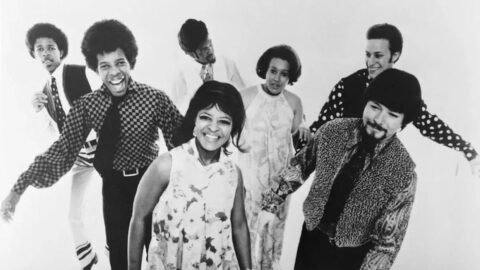
(Credits: Far Out / Press)
It’s one thing to make an album that fans like; it’s a whole other thing to make an album that other artists like. To be an ‘artists’ artist’ is a complex compliment. To some, it’s a sign of pretention or of alienation from the enjoyment of average listeners. To others, it is a pinnacle to hit and a sign of greatness. In the mind of Lindsey Buckingham, it’s the latter.
There are several performers who have been hit with this label. In modern times, Jacob Collier is the biggest example, as people time and time again say that he simply makes music for music students. His work cares more for technicality or impressive skill than atmosphere or energy, and to some, that means it only moves people with a level of know-how. In the 1960s and ‘70s, there were many, many more, but they were typical session musicians who had become the favoured faces for legends to call in. Saxophonist Bobby Keys was one of them. Before The Band took off under their own name, the men in the group were known by other names as other musicians were in awe of their talent.
Some might see that as stifling. It begs the question of what makes music great. Is it the skill, talent, and technicality that goes into it, or is it the way it makes listeners feel? But brushing off the experience of the average fan, does it brush off what music is truly about, or does it honour it on a higher level?
For Lindsey Buckingham, the reaction to one record made him move towards the latter as fans seemed to hate what other musicians love. “I think Tusk has stood the test of time, and it’s one that resonates with fellow artists more in a lot of ways,” he told Vulture about the response to Fleetwood Mac’s divisive 1979 album, both in the immediate aftermath of its release and years down the line.
I say divisive because it was. Even within the band, the members fell into two camps: those who passionately hated the album and those who were all for it. At the time of its creation, Buckingham was really the only one on the second side. It was, admittedly, his brainchild, and he had a specific mission for it. “For me, being sort of the culprit behind that particular album, it was done in a way to undermine just sort of following the formula of doing Rumours 2 and Rumours 3,” he explained. But as the album moved in such a sharply different direction, bringing in some wild new influences like post-punk or avant-pop, everyone was thrown off.
It seems like ever since that record’s release, Buckingham has forever been fighting for it, desperately trying to get people to come around on the album. Plenty of people have, including other band members, as the record has definitely had a reevaluation in recent years. But in Buckingham’s eyes, musicians always got it more than others did.
“It also has become understood in terms of why it was done and is appreciated for that,” he said, suggesting that his “fellow artists” could grasp why he made such a dramatic change in order to shake off any sort of expectation that was being put on the band.
To him, this was an album designed to shock people and free them from the shackles of their past release, while fans, their label and the band themselves couldn’t see that at first, Buckingham trusted that his peers would get it.
Related Topics




